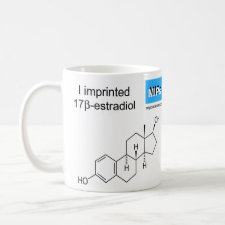
Authors: Prieto A, Vallejo A, Zuloaga O, Paschke A, Sellergren B, Schillinger E, Schrader S, Möder M
Article Title: Selective determination of estrogenic compounds in water by microextraction by packed sorbents and a molecularly imprinted polymer coupled with large volume injection-in-port-derivatization gas chromatography-mass spectrometry.
Publication date: 2011
Journal: Analytica Chimica Acta
Volume: 703
Issue: (1)
Page numbers: 41-51.
DOI: 10.1016/j.aca.2011.07.007
Alternative URL: http://www.sciencedirect.com/science/article/pii/S0003267011009251
Abstract: A fully automated protocol consisting of microextraction by packed sorbents (MEPS) coupled with large volume injection-in-port-derivatization-gas chromatography-mass spectrometry (LVI-derivatization-GC-MS) was developed to determine endocrine disrupting compounds (EDCs) such as alkylphenols, bisphenol A, and natural and synthetic hormons in river and waste water samples. During method optimization, the extraction parameters as ion strength of the water sample, the MEPS extraction regime, the volume of organic solvent used for the elution/injection step, the type of elution solvents and the selectivity of the sorbents were studied. For optimum in-port-derivatization, 10 μL of the derivatization reagent N,O-bis(trimethylsilyl)triufloroacetamide with 1% of trimethylchlorosilane (BSTFA + 1% TMCS) was used. 17β-Estradiol-molecularly imprinted polymer (MIP) and silica gel (modified with C-18) sorbents were examined for the enrichment of the target analytes from water samples and the obtained results revealed the high selectivity of the MIP material for extraction of substances with estrogen-like structures. Recovery values for most of the analytes ranged from 75 to 109% for the C18 sorbent and from 81 to 103% for the MIP material except for equilin (on C18 with only 57-66% recovery). Precision (n = 4) of the entire analysis protocol ranged between 4% and 22% with both sorbents. Limits of detection (LODs) were at the low ng L-1 level (0.02-87, C18 and 1.3-22, MIP) for the target analytes
Template and target information: 17-β-estradiol
Author keywords: estrogenic compounds, Environmental water samples, Microextraction by packed sorbent, Large volume injection in-port-derivatization, molecularly imprinted polymer



Join the Society for Molecular Imprinting

New items RSS feed
Sign-up for e-mail updates:
Choose between receiving an occasional newsletter or more frequent e-mail alerts.
Click here to go to the sign-up page.
Is your name elemental or peptidic? Enter your name and find out by clicking either of the buttons below!
Other products you may like:
 MIPdatabase
MIPdatabase









